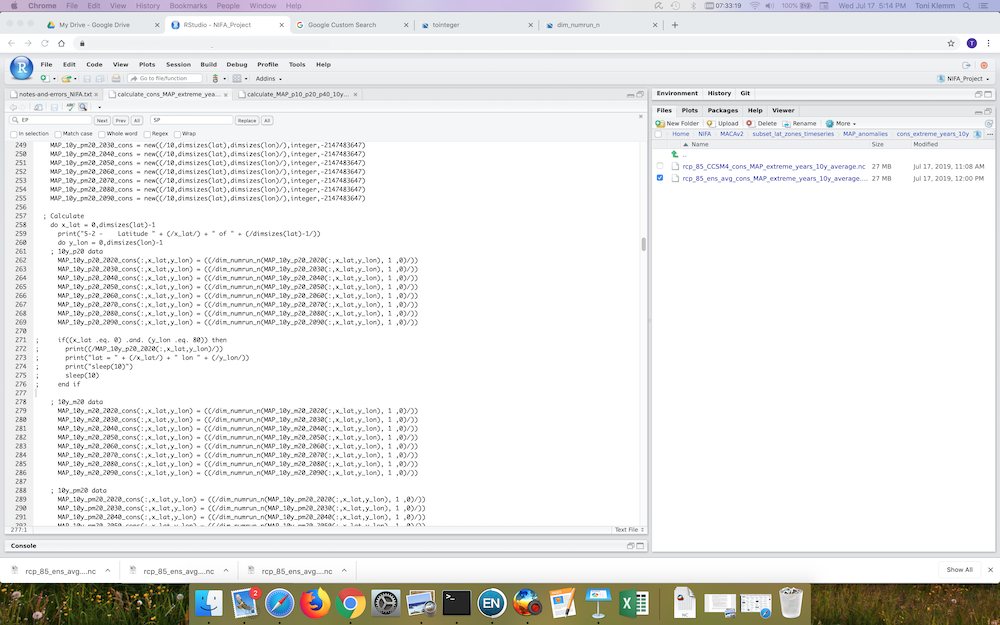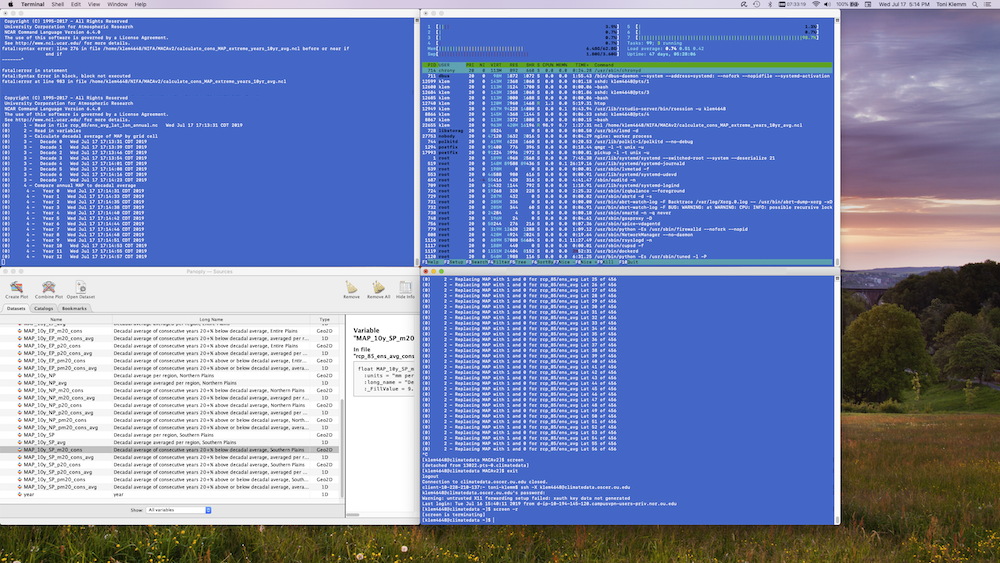|
Wednesday. Getting my script from yesterday to work almost went into day three. Almost. At 5.17 pm, after writing, testing, and debugging 983 lines of code, all errors and typos were corrected, and the script worked like a charm. Sadly, there is not muchto show, yet (also because I have to double-check the results). So in place of graphs and maps, this is what my two monitors looked like for most of today and yesterday. The one the left has Safari running R Studio, which I use to write code and manage files. The one on the right has three blue Terminal windows up and a data viewing app. Terminal is a Mac OS tool that emulates a command-line interface, which I use to tell the computer which files to run and to see some results. The fourth window, the data viewer, is Panoply, a very handy app by NASA to view NetCDF data, the type of data I work with. It comes in handy when I check results.
Despite the looks, my computer doesn't actually do much work. All of my commands and every line of code are sent 360 miles north to the South Central Climate Adaptation Science Center at the University of Oklahoma. There, all our data and most of my code is stored on a data server. Folks there also have NCL and several other programming languages, which makes our life here a lot easier. A good day always becomes better when it ends well. On the third Wednesday of every month, the Texas A&M Postdoc Association organizes a "networking event," a fun hangout with fellow postdocs to chat over snacks and drinks at a bar or restaurant in town, courtesy of the organization. It's a good way to meet peers and make friends, to bring up workplace problems, or just to talk nerdy to fellow nerds. I always enjoy these gatherings! However, today I had to pass it up for something even better – a dinner at an Italian restaurant with my wife. Here are Thursday, Monday, and Tuesday. And if you wonder what this about, here is the intro blog post. A quick note about the heatwave that is bound to hit many parts of the U.S. starting Thursday. If you live between Oklahoma and New England, it will get much warmer than usual in the next few days. Please avoid staying outside for long periods of time, and if you do, make sure you take a water bottle, put on a cap, and try to stay out of direct sunlight. If you want to know how climate change is changing the odds for heatwaves like this, check out yesterday's episode of the "Got Science" podcast by the Union of Concerned Scientists. Comments are closed.
|


 RSS Feed
RSS Feed
